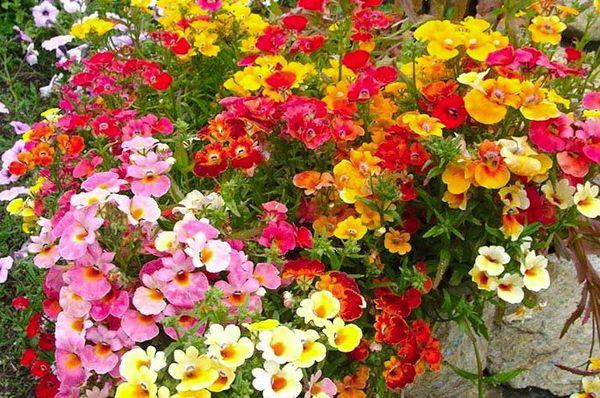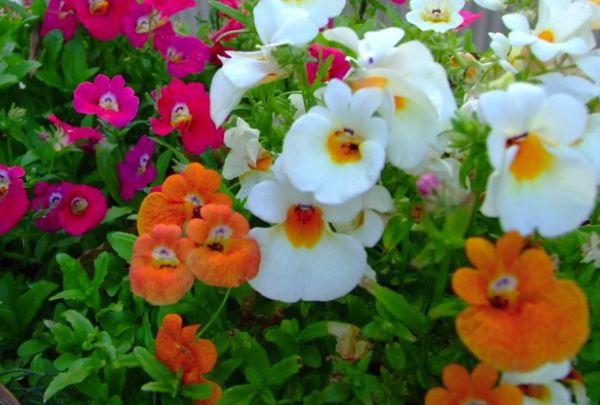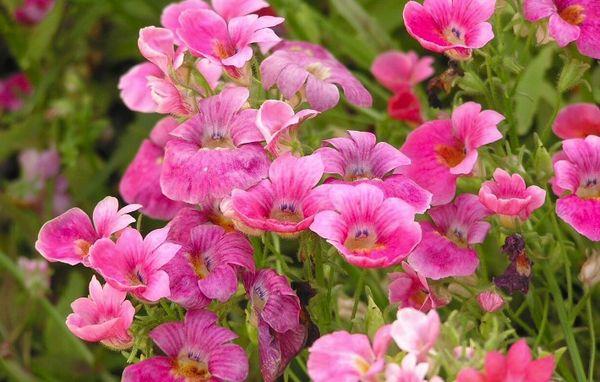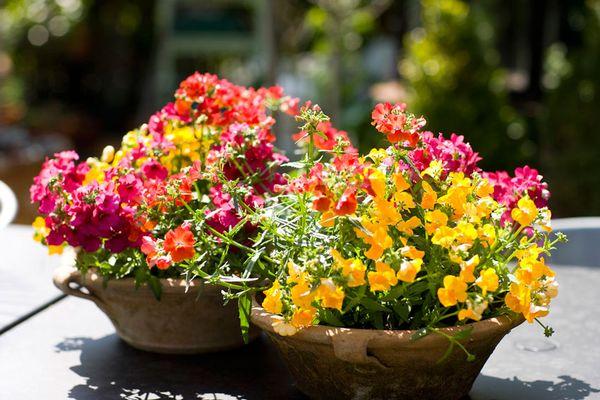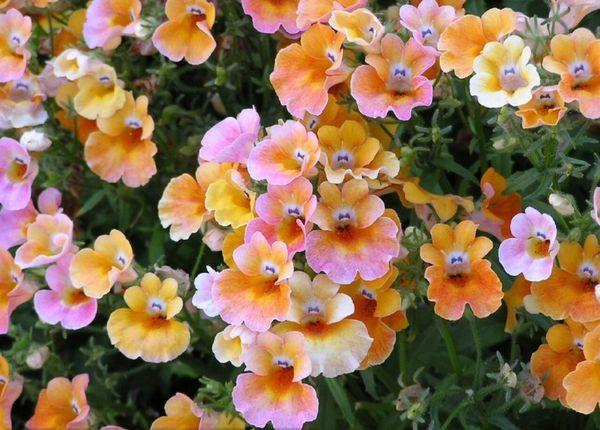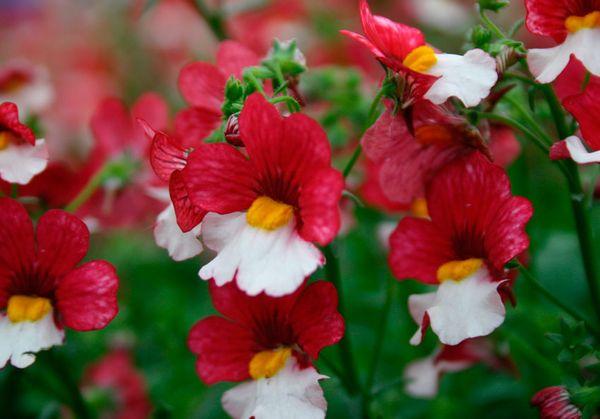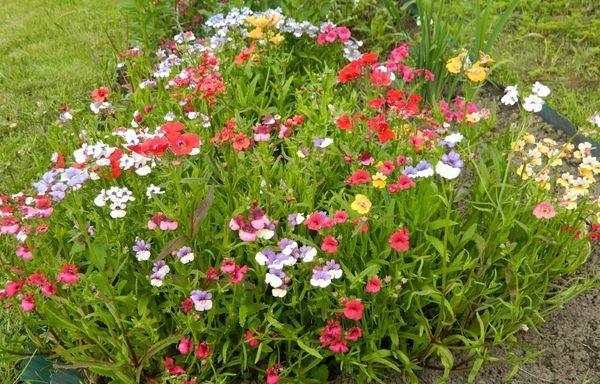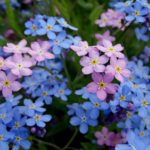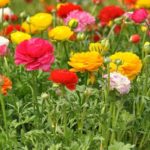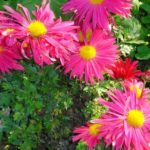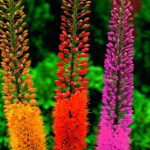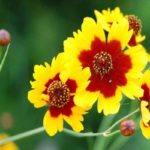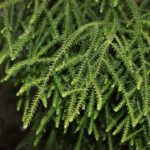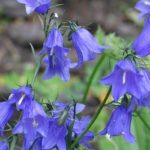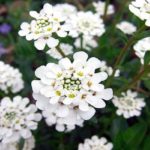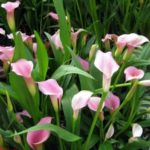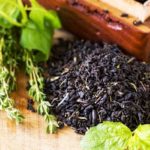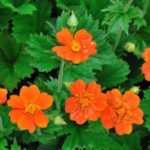Nemesia has gained its high popularity among plant growing enthusiasts due to its exotic appearance, abundant flowering and relative ease of care. This original shrub also has another name - snapdragon. It is planted both as a separate decoration on a personal plot, and in combination with other decorative plantings.
- Botanical description of plants
- Types and varieties of nemesia with photos and names
- Hybrid
- Goiter
- Multicolored
- Lush flowering
- Ampelnaya
- Sunsatia plus granada
- Poetri
- Seven Haven
- Carnival
- Foxtrot
- How to plant in open ground
- Deadlines
- Site selection and soil preparation
- Scheme and technology of sowing and planting seedlings
- Flower care
- Irrigation
- Loosening the soil
- Fertilizer application
- Topping
- Transfer
- How to care for nemesia after flowering
- Diseases and pests: protection and treatment
- Reproduction
- Vegetatively
- Seeds
In order for growing nemesia from seeds to be successful, you need to know the planting process and the subsequent subtleties of care.
Botanical description of plants
Nemesia is a flowering perennial plant, but in northern latitudes it is grown as an annual. The bushes reach only 30-60 centimeters in height. They consist of tetrahedral branched shoots, which may have hard pubescence. As massive inflorescences form, the stems begin to bend and spread along the ground.
The leaf blades are either oval or ovoid in shape; there are practically no petioles. They are painted bright green, their structure is soft, and there is a jagged edge on the sides.
The flowering phase of nemesia occurs in July and continues until early September. The plant is distinguished by a huge number of axillary flowers. They can be solitary or collected in an apical inflorescence. The tubular rim contains several tiers and is divided into 4 parts. Among them, two lip-shaped petals with a bend are distinguished by their large sizes.
The colors of the flowers are coral, white, yellow, blue and purple.
This variety allows gardeners to choose the best option for a particular flower arrangement. There are specimens where the cups are one-color, and there are also two or three colors. The diameter of the flower is 15-2 centimeters.
When the flowering phase ends with nemesia, dark-colored and oblong-shaped seed pods are formed. The seeds in them are in large quantities and small in size. The shelf life of the seed is 2 years.
Types and varieties of nemesia with photos and names
Among the most common varieties of nemesia in northern latitudes, experienced gardeners distinguish: hybrid, goiterous, multi-colored, floriferous, ampelous, Carnival, Foxtrot.
To make a choice, it is necessary to consider each of the varieties in more detail.
Hybrid
Hybrid forms of the flower were developed by crossing Nemesia goiter and variegated. Their height rarely exceeds 60 centimeters. The leaf mass has a lanceolate shape and crenate edges. The unusual flowers are 2.5 centimeters in diameter and grow in racemose inflorescences on the top of the shoots.
Goiter
The nemesia bush is distinguished by its strong branching, its height is 30-40 centimeters. The leaves located on the upper tiers are oblong, and those on the lower tiers are oval. The swollen flowers have no spurs, the throat is pubescent, and their diameter is 2.5 centimeters. The color comes in pink, red, yellow, orange, and there are also variegated specimens of nemesia.
Multicolored
Nemesia variegated is presented as an annual herbaceous plant. It branches heavily, the shoots are thin. Particularly popular among gardeners are such varieties of nemesia as Blue Bird with bright blue flowers, and Edelbau with a forget-me-not tint of inflorescences.
Lush flowering
The height of the bush does not exceed 30-40 centimeters. The shoots grow strong and have a bright green color. The delicate flowers are blue and small in size.
Ampelnaya
To create this nemesia, eight varieties were used: Peach, Cranberry, Lemon, Banana, Blackberry, Mango, Pineapple, Coconut. The plant is quite beautiful, unpretentious to growing conditions.
Sunsatia plus granada
The flowering phase of nemesia begins in July and ends in September. Shoots grow up to 30 centimeters.Light-loving nemesia is used for planting in flower beds, flowerpots, and flowerpots. Nemesia flowers have a blood-red color and a sweetish aroma.
Poetri
Nemesia is a bush of compact size - up to 30 centimeters. It blooms profusely with beautiful flowers. The branching is strong, pinching is not required. It is actively grown in open areas, containers, and flowerpots.
Seven Haven
Annual nemesia is 30-35 centimeters in height. There are single-color and two-color specimens. Nemesia attracts attention with its high decorative value and universal use: in open ground, in flowerpots, containers.
Carnival
Nemesia was developed by using different varieties. Its height is only 30 centimeters, the stems are branched, the leaves are sessile, oppositely located. The swollen flowers have no spurs. The inflorescences are painted in a variety of colors, which gives them originality.
Foxtrot
The height of the highly branching bush is 30 centimeters. Bicolor flowers stand out in bright blue and white. The plant looks quite exotic and beautiful.
How to plant in open ground
Although Nemesia has established itself as a plant that is not demanding of conditions, it must be planted in accordance with certain rules.
Deadlines
Nemesia seedlings should be planted in open areas in the spring, when the threat of return frosts has passed. The best time is late May-early June.
In regions with a warm climate, sowing can be done directly into the ground - in the spring. Seeds are sown for seedlings in late February-March.
Site selection and soil preparation
For normal growth and development of the crop, you should choose sunny meadows protected from draft winds. The soil should be sufficiently drained, moist and slightly acidic or neutral. The degree of fertility should also be average. Planting in partial shade is possible, but it is better to give preference to well-lit areas.
Scheme and technology of sowing and planting seedlings
The sowing algorithm involves performing the following actions:
- Fill the prepared containers with a light substrate of garden soil and sand or a universal soil mixture.
- Moisten the soil with a spray bottle.
- Distribute small seeds over the surface.
- Sprinkle with sand.
- Cover the crops with polyethylene to create a greenhouse effect.
Place containers with seeds in a warm, well-lit place where the temperature is between 15-20 degrees. The crops should be ventilated every day; half an hour a day is enough. Irrigation should be done using a spray bottle, avoiding drafts. Picking into separate containers is carried out when a pair of true leaves appear.
Seedlings are planted in open areas when warm weather sets in. If you need to decorate a garden path, then the bushes are planted in shallow grooves at a distance of 15-20 centimeters from each other.
The soil for growing nemesia bushes must have sufficient moisture and air permeability, but do not allow moisture to stagnate, so as not to provoke rotting of the root system. When planting, you do not need to hold nemesia by the stem; it is better to hold it by the leaves.
Flower care
Nemesia does not require a special approach when growing; it is enough to water it regularly, remove weeds around it, and loosen the soil.Nemesia also responds gratefully to feeding procedures.
Irrigation
You should not overdo it with watering; nemesia is moistened 3-4 times a week. Irrigation measures are carried out as the top layer of soil dries out.
Loosening the soil
To avoid oxygen starvation of the roots, you need to regularly loosen the soil under the nemesia bushes. It is better to do this after each irrigation.
Fertilizer application
The first feeding procedure is carried out 7 days after planting in a permanent place. During the active growing season, it is necessary to apply fertilizer compositions with a high concentration of nitrogen. At the budding stage, fertilizing with phosphorus and potassium is required.
Topping
In order for nemesia to branch beautifully, it is recommended to pinch its shoots. It is permissible to shorten long stems at any time of the year.
Transfer
When growing a crop in a pot, replant every year. The optimal time for the procedure is spring.
How to care for nemesia after flowering
To preserve the decorative appearance of the plant, after the flowering phase is completed, the faded inflorescences are removed. This technique allows new shoots with flowers to form soon.
Diseases and pests: protection and treatment
Fungicides should be used against root rotting. This disease appears when the watering regime is violated - excess moisture. Actellik, Fitoverm, Karate work effectively against spider mites.
Reproduction
To get a new plant, you should use the seed or vegetative method.
Vegetatively
The shoots are obtained from the top of the shoot. Each cutting should have 2-3 leaves. The soil mixture should be for succulents. The cutting is placed in a pot with a substrate, watered and covered with polyethylene.For better rooting, the room temperature should be 12-20 degrees.
Irrigation is carried out from a spray bottle. After 2-3 weeks the greenhouse is removed.
Transplantation to a permanent place is performed when the roots entwine the entire earthen ball.
Seeds
Sowing of seeds is carried out in the spring. First, they are kept in a cool place at a temperature of 15-22 degrees and darkness, and after 7 days the sprouted specimens are placed in a container with fertile soil.
Nemesia is a luxurious and unpretentious plant. Growing it is not difficult, the main thing is to follow the basic recommendations for planting and care.

